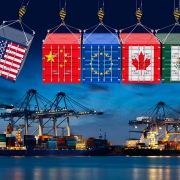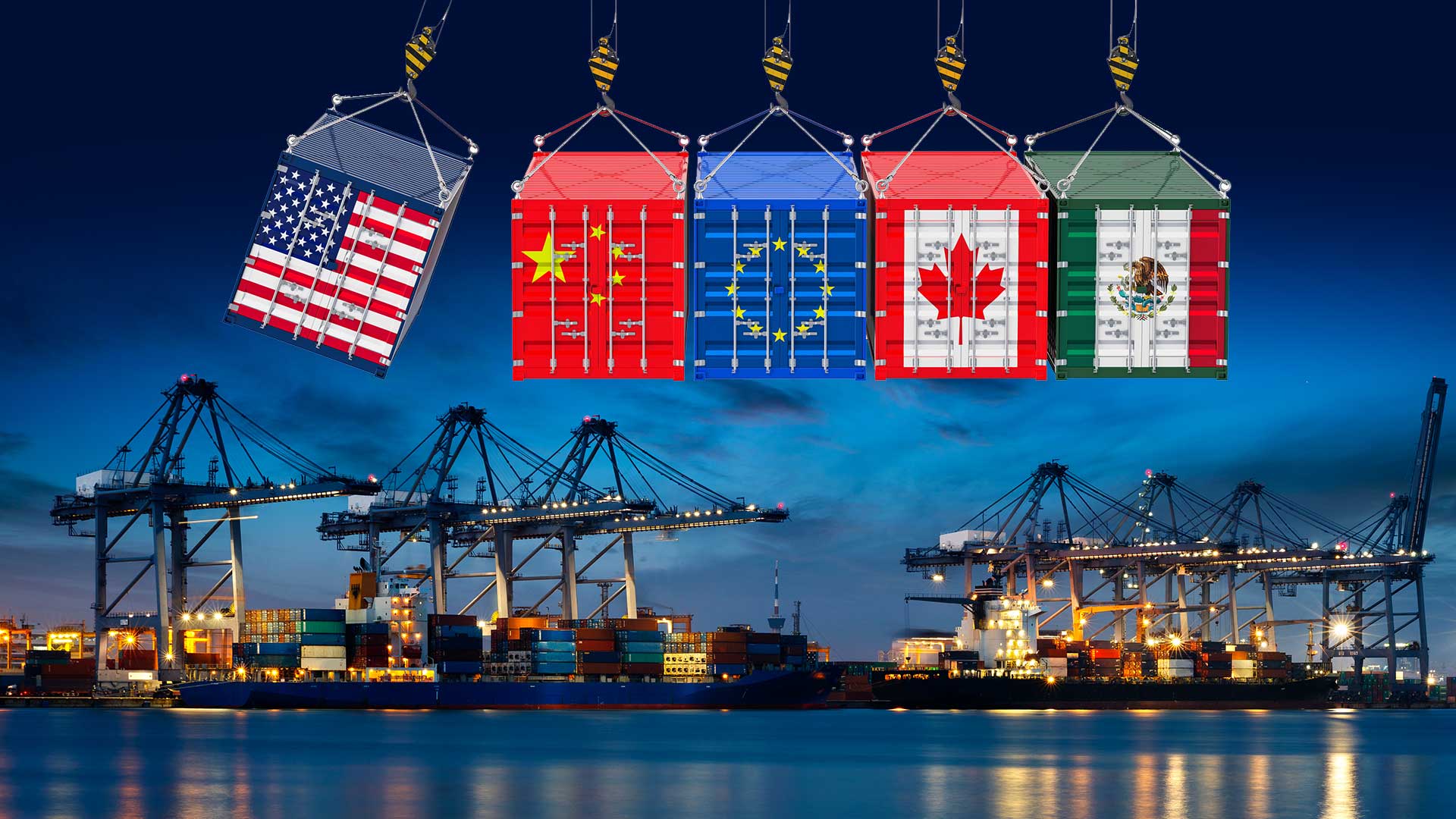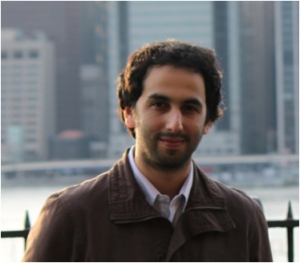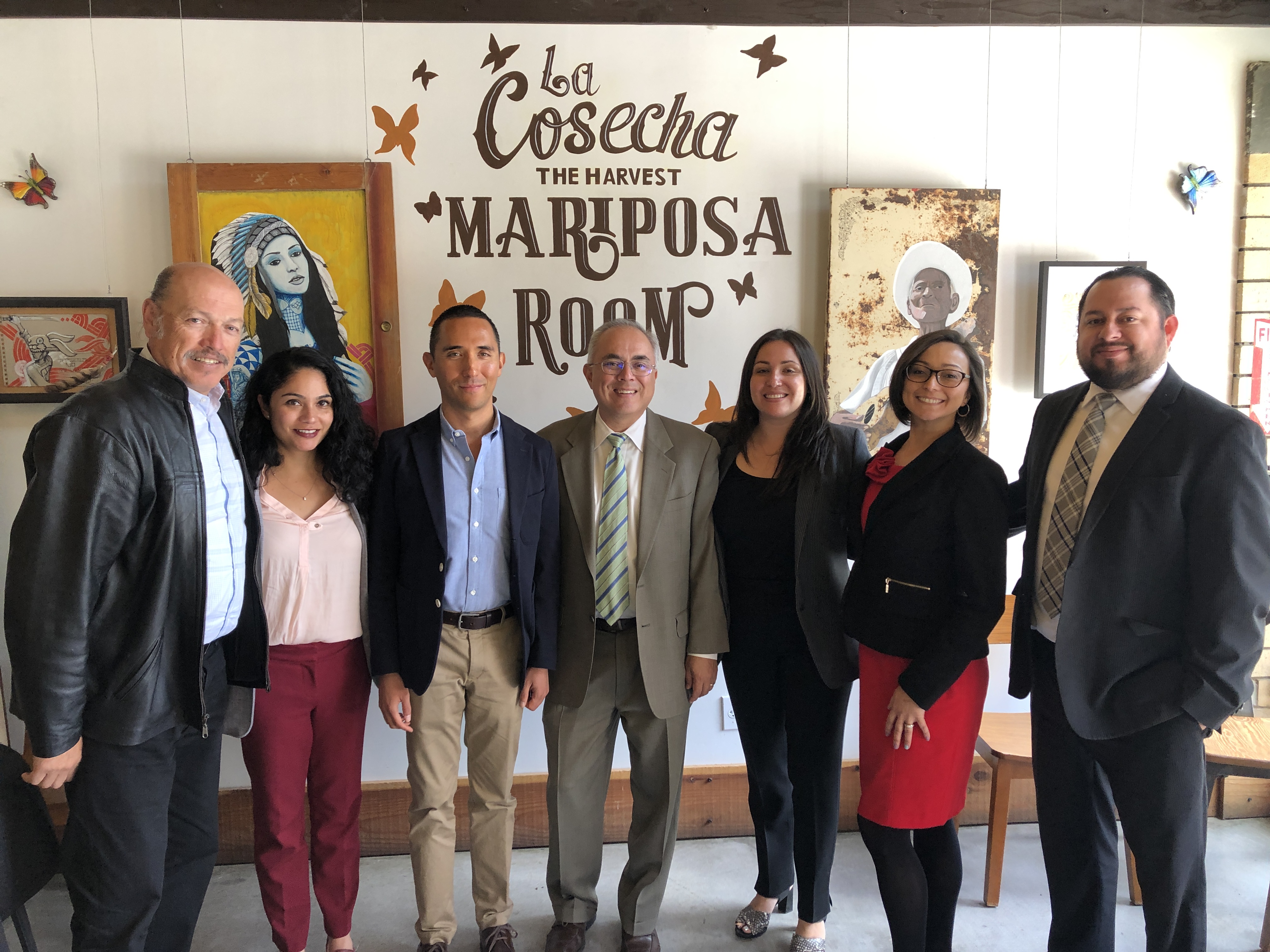
The California Latino Legislative Caucus and UCLA LPPI staff gather for a photo that commemorates the second year of their partnership which aims to increase access to pertinent data science on Latinos.
By Celina Avalos and Sonja Diaz
On May 20, 2019, the UCLA Latino Policy and Politics Initiative (LPPI) hosted its second annual California Latino Legislative Policy Briefing in Sacramento. The policy briefing, co-hosted by the California Latino Legislative Caucus and UCLA Government & Community Relations, featured research presentations by three LPPI faculty experts: Dean Gary Segura, Dr. Melissa Chinchilla and Dr. Arturo Vargas Bustamante.
The policy briefing was attended by 50 guests who are policy advocates, legislative staff, and community leaders. The meeting convened at La Cosecha in Sacramento where the group learned more about LPPI’s latest research findings and discussed policy interventions that could improve the lives of California residents.
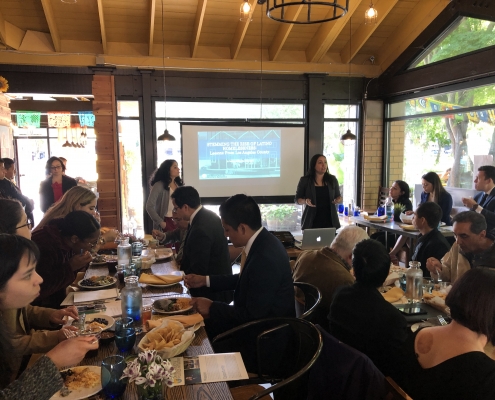
LPPI expert Dr. Melissa Chinchilla and LPPI Executive Director Sonja Diaz introduce LPPI’s recent report on Latino homelessness to a packed house in La Cosecha.
Attendees heard from the LPPI faculty experts on a wide-range of domestic policy issues including voting, housing, and health. The issues discussed in the briefing are critical policy challenges that the California legislature is addressing through new lawmaking. Each issue has unique impacts on California’s plurality. Fortunately, LPPI’s legislative briefing provided a space for policy leaders to understand more clearly which policy solutions are better suited to address the disparities faced by Latinos.
Kicking off the policy briefing was Dean Segura, who presented his research on public opinion trends leading to the 2020 presidential election. In 2018, LPPI’s research documented a 77% increase in Latino votes cast. This increase was configured by looking at and comparing the midterm elections from 2014 to 2018. Dean Segura’s presentation expanded on trends identifying leading public opinion sentiments that influenced voters of color (Asian Americans, Blacks, and Latinos) on issues involving immigration, #MeToo, access to affordable health care, and support for gun laws. Largely, the 2018 election illustrated the upward potential of Latino vote growth in and beyond California. The numbers showed voters of color embraced Democratic positions on guns, health care, and immigration at higher rates than their white peers.
Next, Dr. Chinchilla followed with her research on homelessness in Los Angeles County. In her policy presentation on Latino homelessness, Dr. Chinchilla cemented the lack of accurate data on Latinos facing housing insecurity and reiterated the fact that this demographic group remains undercounted.
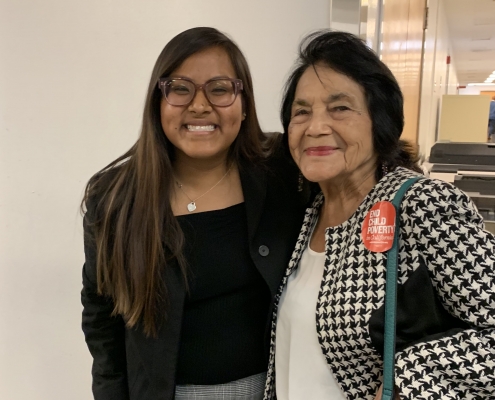
LPPI Policy Fellow Celina Avalos met UFW leader and advocate Dolores Huerta during visits to the State Capital discussing LPPI’s work on housing and health.
Highlighting findings from her LPPI report, Stemming the Rise of Latino Homelessness, Dr. Chinchilla shared that homelessness is not a one size fits all narrative. She stated, “Many factors contribute to the undercount of Latinos facing housing insecurity, like immigration status, economic vulnerability, and cultural and language barriers.”
Dr. Vargas Bustamante concluded the policy briefing with his work on the California Latino physician crisis, which addresses a key issue facing the state—the shortage of healthcare workers. Dr. Vargas Bustamante’s policy presentation integrated findings from his report, Latino Physician Shortage in California: The Provider Perspective. He shared, “As California’s plurality, Latinos will represent 44.5% of California’s population by 2050. However, currently only 4.7% of physicians in California are Latino.”
According to Dr. Vargas Bustamante, the contributing factors to the Latino physician shortage include: lack of financial support and opportunity, academic disadvantages, navigation, underrepresentation, and citizenship.
LPPI’s briefing provided a novel opportunity for leading policy stakeholders to engage in timely policy issues centered on the needs of the state’s plurality. This briefing builds upon LPPI’s legislative portfolio of engaging elected and appointed officials on critical policy issues with data and facts, breeding new research-practice partnerships and accelerating the capacity for evidence-based policy.







